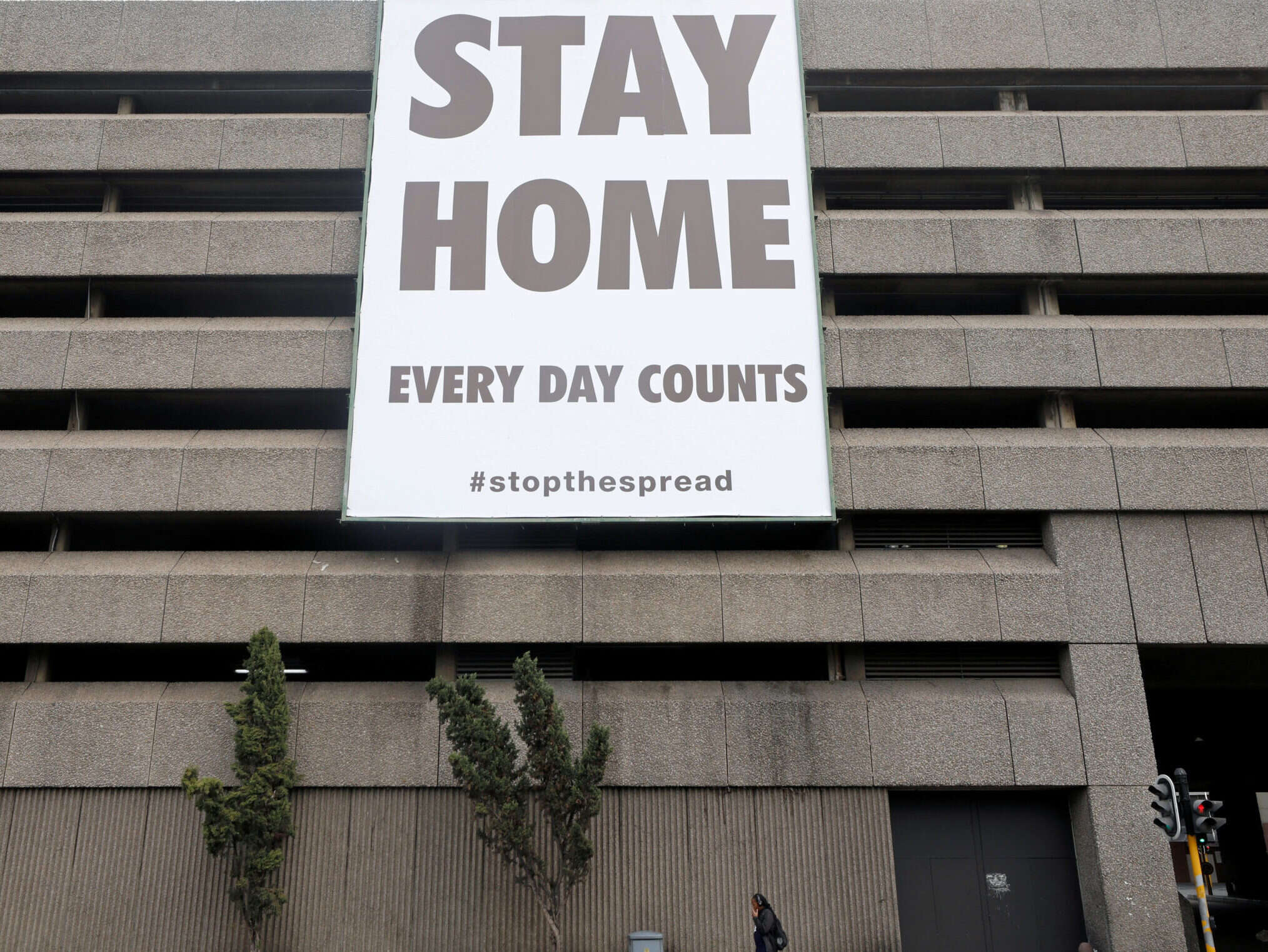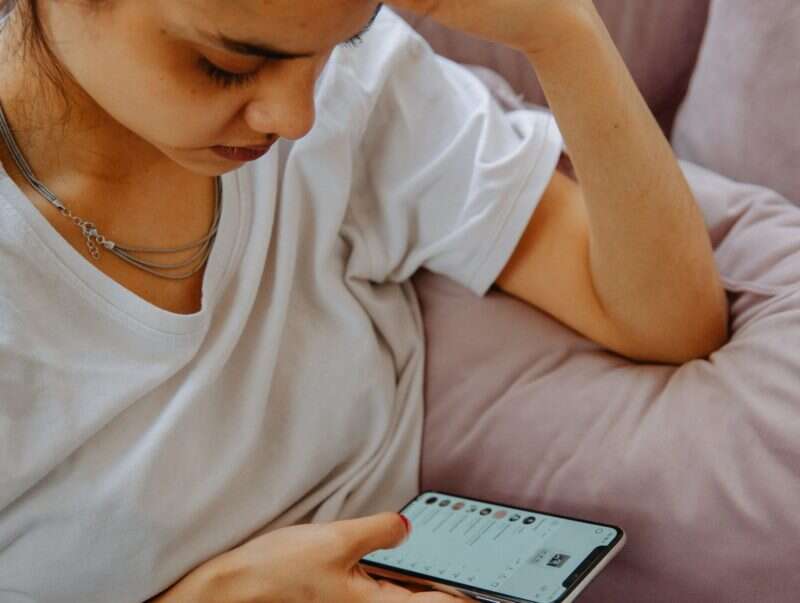
Four in ten Press Gazette readers believe their mental health is suffering for work-related reasons during the coronavirus lockdown, a new poll shows.
Ways of coping with the unprecedented impact of Covid-19 could include accepting that you may only be 75 per cent as productive as you were during “normal” times, one expert suggested.
Spectator assistant editor Isabel Hardman, who has previously spoken out about her own mental illness, encouraged people to take time outside every day: “making it a priority to recharge your mind, trying to put your phone away and focus on what you can see, hear, smell, feel around you”.
Some 40 per cent (472) of 1,182 Press Gazette readers who responded to our latest poll said they believe changes to working conditions brought by Covid-19 have harmed their mental health.
Gavin Rees, executive director of the Dart Centre for Journalism and Trauma in Europe, told Press Gazette that although journalists are “highly resilient” and used to working in highly stressful situations, the nature of the Covid-19 pandemic means it is harder to have a “low release” phase from the news cycle.
“In other words, it’s harder to be working on a stressful story or immersing yourself in a dark subject and then getting away from it in order to recover and recuperate because it’s just unremitting,” he said.
“In this kind of story there will be a lot of people who are reporting with continuing elevated levels of stress from the work they’re doing, and it’s harder to get your head out of it, so it’s harder to reset.”
Hardman agreed that although journalists are often “gregarious” people who enjoy the company of others, they are good at adapting to finding stories in unusual places and working alone, too.
Hardman, who is heavily preganant, said her midwife told her last week that it was time to “relax and just stop paying attention to all the horrible news out there”.
“I just laughed and I said ‘I have to, it’s my job’. I have to watch the Downing Street press conference on how many people have died otherwise I won’t earn any money.
“That’s the nub of it for journalists. We’re all used to covering difficult stories, and if you’re on a local you’re used to covering deaths, if you’re on a national you’re used to writing up horrible statistics and so on.
“But I think where this becomes difficult is that we’re also living it ourselves.”
Rees added: “A lot of us are spending our headspace in dealing with a typically very negative news flow. It’s pretty hard to find things to be positive about.
“But it’s very important to try and disconnect from that news flow, whatever you can do to kind of invest in other things outside of that, because the negative things are very tenacious.
“Once they start playing with the mind they’re quite sticky – when you start worrying about one bad thing, it’s very easy to start worrying about another unrelated bad thing.”
News and scrolling saturation
Normally, Hardman said, journalists can mentally separate their professional and personal lives into boxes.
But now they are all blurring into one as “once you switch off for work you’re still at home, with your family, basically unable to leave the house except for the essential reasons and all your methods of unwinding as a journalist, which I suppose in a lot of cases would involve going to the pub, aren’t there anymore”, she said.
Although Hardman calls it “terror scrolling” and Rees “doom scrolling”, they both warned against saturating yourself with coronavirus news, especially before bed.
Hardman said: “We need to be able to just switch off for a bit and not be lying in bed, staring at Twitter.
“We can say ‘I’ve got to know about this for work’, but actually, our minds will work better if we do have a bit of time where we aren’t forcing the news down our throats.”

Woman looking at smartphone. Picture: Polina Zimmerman/Pexels
Journalists who cannot do their normal jobs because there isn’t the usual market for it – perhaps those on furlough or working on long-term documentary projects – are living with “not just stress but an enormous degree of uncertainty,” Rees said.
Meanwhile those used to being in newsrooms may feel isolated being away from their colleagues if they are now working from home.
Rees said journalists who normally work remotely will be facing a different set of challenges – such as conducting all interviews remotely rather than face to face.
“That can be pretty destabilising for a journalist who wants to make sure that they’re interviewing people effectively and sensitively without causing additional distress,” Rees said.
Industry fears
Hardman also raised concerns that many journalists are “really worried” about their own long-term job security, with many put on furlough or working at publications that are being hit by the sharp decline in advertising revenue.
“It’s a worrying time for a lot of journalists and our industry has not been very secure for a while. And in some cases coronavirus may be the thing that kills off some publications.
“We’re lucky at The Spectator in that we’re very secure but this is affecting everyone in the industry.”
Getting outside and other top tips
Hardman last week published her new book, The Natural Health Service, about the proven benefits getting outside into nature has for mental wellbeing.
The book points to research showing that being around nature can help restore your attention span and ability to cope with stressful events, and Hardman encouraged all journalists to take their hourly daily exercise time and step away from their phones.
“Starting to get back in touch with your senses could help ground you in the present moment rather than in everything that’s in your head,” she said.
“We can get so caught up in a kind of washing machine cycle of our worried thoughts. It’s really important to actually remind ourselves of what’s real at that very moment.”
She added that even when you’re not outside it is still important to get in touch with nature, such as by sitting by a window and being a “bit more intentional about what you do with your brain” during short breaks.
Rees also shared his top tips for journalists to look after themselves at this time:
- If working from home, have some structure and routine so you keep your sense of self efficacy and agency
- Pace yourself and don’t be overly ambitious about your projects both in work and for fun: remember most people will only be 75 per cent as productive as in “optimal” times
- Check in with yourself and your moods and acknowledge that some types of work or articles may be better held to another day
- Create a strategy for yourself that helps to dampen down the physiological impact of stress, such as exercise, deep diaphragmatic breathing or stretching
- Social connection – including time in which you can talk about the additional work challenges generated by Covid-19 so you can share positive things that might help
- Try and avoid using screens late at night to help cultivate proper sleep.
Picture: Cottonbro/Pexels
Email pged@pressgazette.co.uk to point out mistakes, provide story tips or send in a letter for publication on our "Letters Page" blog
